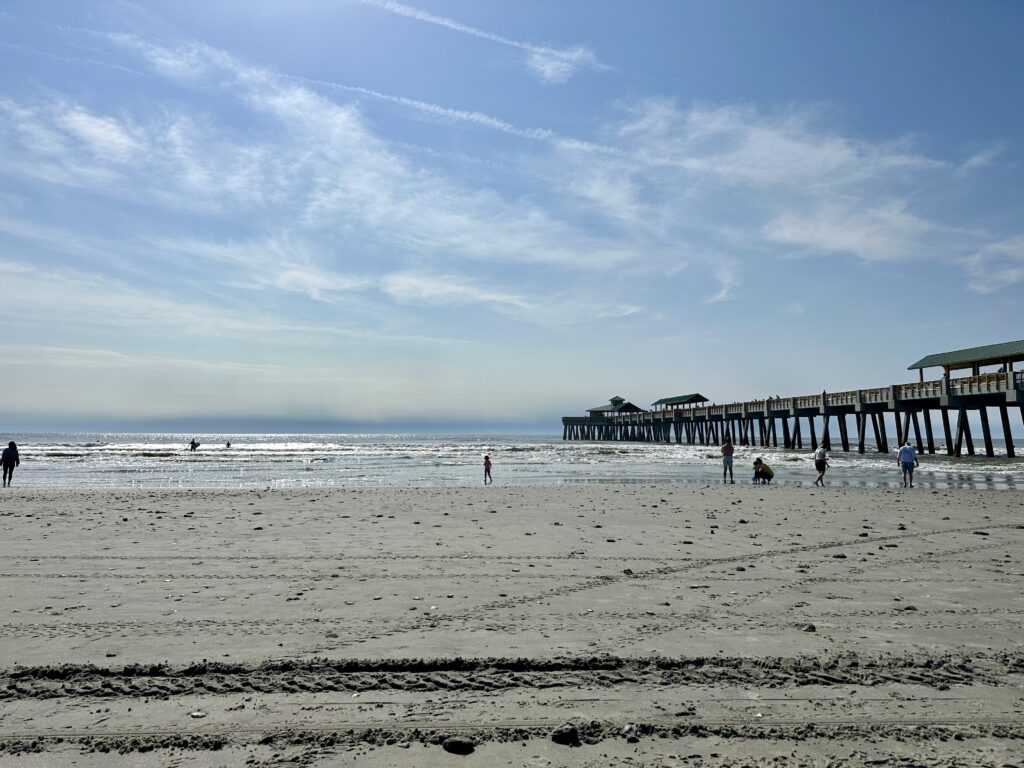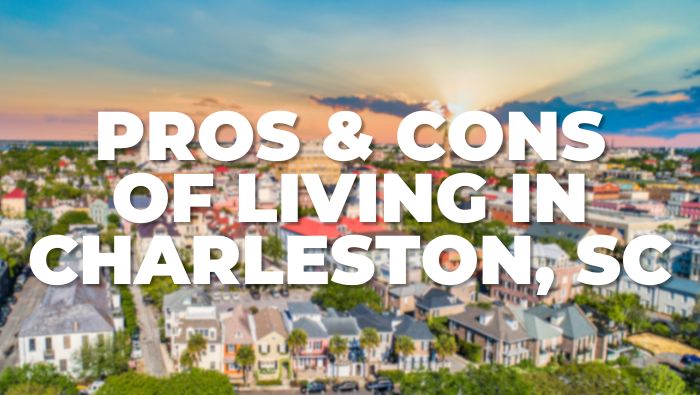Pros and Cons of Living in Charleston, SC: A Local Realtor’s Insight
Introduction
Charleston, South Carolina, often referred to as the “Holy City,” is renowned for its rich history, charming streets, and coastal allure. Whether you’re drawn to its picturesque beaches, vibrant culinary scene, or the promise of Southern hospitality, Charleston has become a top choice for those looking to relocate. However, like any city, Charleston comes with its unique set of advantages and challenges. As a local realtor with years of experience helping people find their perfect home in this beloved city, I’ve seen firsthand what makes Charleston a fantastic place to live—and what might make you think twice. This guide will walk you through the pros and cons of living in Charleston, SC, helping you make an informed decision about whether this coastal gem is the right place for you.
The Pros of Living in Charleston, SC
1. Rich Historical and Cultural Heritage
Charleston is a city that wears its history on its sleeve. As one of the oldest cities in the United States, it offers a unique opportunity to live among beautifully preserved 18th and 19th-century architecture. Walking through neighborhoods like the Battery or along Rainbow Row, you’ll encounter historic homes that have stood the test of time, offering a glimpse into the past. The city’s historic districts are a living museum, where cobblestone streets lead you to some of the nation’s most significant landmarks, including Fort Sumter, where the first shots of the Civil War were fired.
Beyond the historic buildings, Charleston boasts a thriving arts scene. The city is home to numerous galleries, museums, and theaters, including the Dock Street Theatre, which is one of the oldest performing arts venues in the country. Whether you’re a history buff or an art lover, Charleston offers a cultural richness that few cities can match.
2. Thriving Culinary Scene
Charleston’s culinary reputation is well-deserved, with the city consistently ranked as one of the top food destinations in the country. The local dining scene is a delightful mix of traditional Southern comfort food and cutting-edge cuisine. Restaurants like Husk and FIG have received national acclaim, drawing food enthusiasts from around the world. Whether you’re in the mood for fresh seafood, farm-to-table dishes, or a classic Lowcountry boil, Charleston has something to satisfy every palate.
One of the highlights of Charleston’s food scene is the annual Charleston Wine + Food Festival. This event brings together chefs, winemakers, and food lovers for a celebration of the region’s culinary talents. It’s not just a festival but a testament to the city’s commitment to good food and hospitality.
3. Access to Beautiful Beaches
Living in Charleston means having some of the most stunning beaches on the East Coast right at your doorstep. Folly Beach, Sullivan’s Island, and Isle of Palms are just a short drive from downtown, offering endless opportunities for relaxation and recreation. Whether you’re into surfing, kayaking, or simply soaking up the sun, Charleston’s beaches are perfect for a variety of outdoor activities.
The coastal lifestyle here is a major draw for both locals and visitors alike. Imagine starting your day with a walk along the beach or ending it with a sunset over the Atlantic Ocean—this is the everyday reality for Charleston residents.

4. Family-Friendly Environment
Charleston is often recognized as a great place to raise a family. The city offers a blend of excellent schools, low crime rates in many neighborhoods, and a strong sense of community. Neighborhoods like Mount Pleasant and West Ashley are particularly popular with families, offering top-rated schools, spacious parks, and plenty of family-friendly activities.
In addition to good schools, Charleston also offers a variety of outdoor spaces where families can enjoy nature together. Parks like James Island County Park and Cypress Gardens provide plenty of opportunities for hiking, biking, and picnicking, making Charleston an ideal environment for an active family lifestyle.
5. Booming Job Market
Charleston’s economy is thriving, with significant growth in sectors like technology, healthcare, and hospitality. The city’s job market has been booming, attracting professionals from all over the country. Major employers like The Boeing Company, Roper St. Francis Healthcare, and various tech startups provide ample job opportunities.
Charleston’s economy is not just about traditional industries; it’s also becoming a hub for innovation and entrepreneurship. The city’s growing tech scene has earned it a reputation as the “Silicon Harbor,” offering a promising environment for those in the tech industry.
The Cons of Living in Charleston, SC
1. High Cost of Living
While Charleston offers many lifestyle advantages, it comes at a cost. The city’s popularity has driven up the cost of living, particularly in the housing market. Home prices in Charleston are significantly higher than the national average, with the average sale price hovering around $750,000. Renting isn’t much cheaper, with the average rent for a one-bedroom apartment around $1,500 per month.
The cost of living extends beyond housing. Charleston’s dining, entertainment, and retail sectors also tend to be pricier, making it one of the more expensive cities in South Carolina.
While the cost may be high, there are still a ton of free things to do in Charleston!
2. Weather Challenges
Charleston’s subtropical climate means hot, humid summers and mild winters, which can be a double-edged sword. While the warm weather is great for outdoor activities, the heat and humidity can be oppressive, particularly during July and August. The city is also prone to unpredictable weather patterns, including frequent thunderstorms and the occasional hurricane.
Hurricane season is a significant concern for Charleston residents. The city’s location on the coast makes it vulnerable to hurricanes and tropical storms, which can bring heavy rainfall, flooding, and even property damage. Preparing for these weather events is a necessary part of life in Charleston. Hurricane season runs from June 1 – November 30.
3. Traffic and Congestion
As Charleston continues to grow, so does its traffic problem. The city’s infrastructure has struggled to keep up with the influx of new residents and tourists, leading to congestion, particularly in popular areas like downtown and the historic district. Commutes can be lengthy, and parking can be a challenge, especially during peak tourist seasons.
Public transportation options are limited, which means most residents rely on cars for their daily commute. While some neighborhoods offer walkability, those living in the suburbs or on the islands will find a car essential for getting around.
4. Construction and Development Issues
Charleston’s rapid growth has led to a surge in construction projects, particularly in areas like around Bees Ferry and Glenn McConnell Parkway. While development is necessary to accommodate the city’s expanding population, it can also be disruptive. Ongoing construction can lead to road closures, traffic delays, and noise, which can be a nuisance for residents.
Additionally, some locals worry that the city’s historic charm is being compromised by overdevelopment. As new buildings go up, there are concerns about maintaining the character and aesthetic of Charleston’s historic districts.
5. Flooding and Environmental Concerns
Flooding is a serious issue in Charleston, particularly in low-lying areas. The city’s coastal location makes it highly susceptible to flooding, especially during hurricane season. Even a heavy rainstorm can cause streets to flood, leading to property damage and disruptions in daily life.
While the city is investing in infrastructure improvements to mitigate flooding, it remains a significant concern for residents. The risk of flooding also affects insurance costs, with many homeowners needing to invest in flood insurance.
Conclusion
Charleston, SC, offers an unparalleled blend of history, culture, and coastal beauty. Its vibrant food scene, rich heritage, and family-friendly environment make it an attractive place to live. However, potential residents must weigh these benefits against the city’s challenges, including its high cost of living, weather risks, and traffic issues.
As a local realtor, my advice is to spend time in the city, explore its neighborhoods, and consider how these factors align with your lifestyle. Charleston may be the perfect place for you, but it’s important to go in with a full understanding of both the pros and cons. Whether you’re drawn to the historic charm or the beachside living, Charleston has a lot to offer—just be prepared for the realities that come with living in this unique city.
About the Author
Bill Olson is a seasoned Realtor based in Charleston, SC. Bill has a deep knowledge of the Charleston real estate market and a knack for expert negotiation. When he’s not assisting buyers and sellers, you can find him with his family or creating insightful content on YouTube, where he shares his expertise on local market trends and the charm of Charleston’s neighborhoods.
Reach out to Bill Olson today to start your journey toward owning a home in Historic Downtown Charleston, SC. Call or text Bill at 843-580-8010.
Or SCHEDULE A CALL directly on his calendar.


